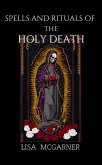In "The Holy War," John Bunyan crafts a compelling allegorical tale that represents the eternal struggle between good and evil within the human soul. Written in a period marked by religious turmoil and the burgeoning of Puritan literature, Bunyan employs vivid imagery and intricate symbolism to narrate the siege of the city of Mansoul by the forces of Diabolus. The narrative unfolds with a dramatic blend of prose and poetic elements, illustrating spiritual warfare and the redemptive power of faith while drawing heavily on biblical references, thus firmly rooting it in the theological debates of 17th-century England. John Bunyan, an uneducated tinker imprisoned for his nonconformist beliefs, faced the harsh realities of his faith, which likely informed his exploration of themes such as temptation and salvation in this work. His own experiences of spiritual conflict and enlightenment, coupled with a profound commitment to evangelism, shaped the philosophical and theological underpinnings of "The Holy War." Bunyan's mastery of allegory not only reveals his literary prowess but also reflects his deep engagement with the moral dilemmas of his time. This book is highly recommended for readers seeking an insightful exploration of spiritual conflict and human resilience. Bunyan's rich allegorical style and profound insights offer timeless lessons that resonate with contemporary audiences, making "The Holy War" a vital read for anyone interested in the intersections of religion, literature, and moral philosophy.
Dieser Download kann aus rechtlichen Gründen nur mit Rechnungsadresse in A, B, BG, CY, CZ, D, DK, EW, E, FIN, F, GR, H, IRL, I, LT, L, LR, M, NL, PL, P, R, S, SLO, SK ausgeliefert werden.









